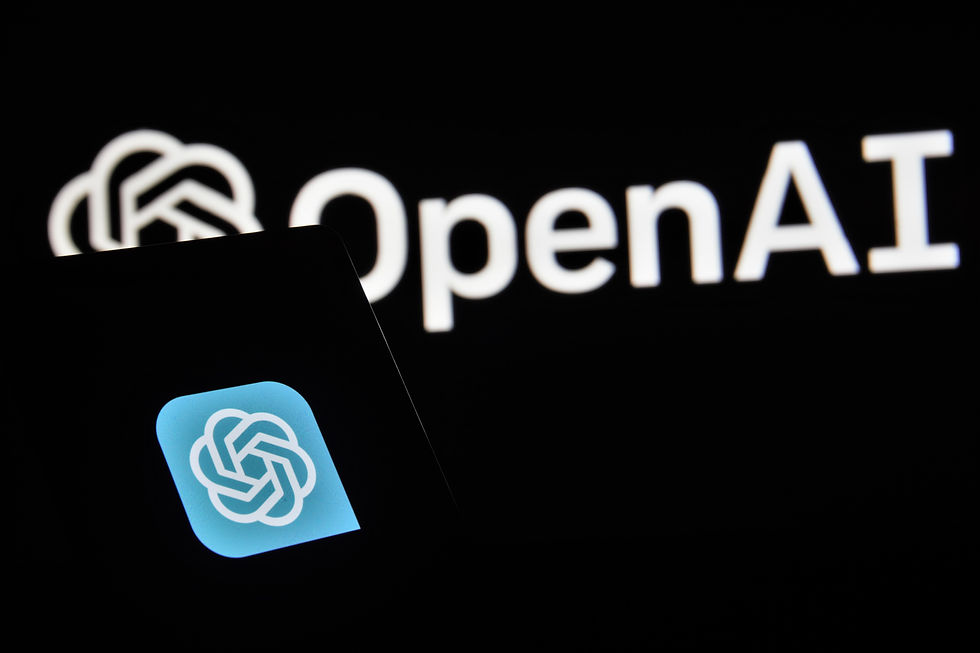The Ethics of AI, Fake News, and the Role of Independent Media in the Quest for Human Rights
- Nov 2, 2023
- 3 min read
Artificial Intelligence (AI) has become an integral part of our lives, influencing the way we work, communicate, and access information. As AI technologies continue to advance, they bring a host of ethical challenges and opportunities. Following conversations at Anthropy 2023, RFK Human Rights UK delves into the complex terrain of AI ethics, the issue of biases, the threat of fake news, and the pivotal role of reliable independent media and journalism in upholding human rights. Here we explore the dichotomy of technology as both a potential threat and a powerful tool in the pursuit of human rights.

AI and the Challenge of Bias
AI systems, such as ChatGPT, are not immune to biases. They are trained on vast datasets that often contain historical prejudices and stereotypes. These biases can be inadvertently perpetuated, resulting in biased or offensive outputs. The ethical concern lies in AI systems potentially reinforcing and amplifying existing social biases, leading to discrimination and inequality. This poses the question - is AI ignoring our human right to be treated equally?
The solution to addressing bias in AI requires rigorous data curation, transparent algorithms, and ongoing oversight to ensure these systems are both accurate and fair. Striking the right balance is paramount, as AI can be a powerful tool for promoting inclusivity, efficiency, and accessibility.
Fake News and Disinformation
The rise of fake news and disinformation has become a pressing issue in the digital age. AI is both part of the problem and a potential solution. Automated bots and algorithms can be used to spread falsehoods, manipulate public opinion, and erode trust in reliable sources. The proliferation of disinformation can have dire consequences, such as undermining elections, public health efforts, and human rights.
However, AI can also be harnessed to combat fake news. Natural language processing algorithms can be used to identify and fact-check misleading information. The key is promoting media literacy and digital education to empower individuals to critically evaluate the information they encounter.

The Role of Reliable Independent Media
Reliable independent media and journalism are essential pillars of democracy and human rights. They serve as watchdogs, holding governments and powerful entities accountable. They provide a platform for marginalised voices, expose corruption, and shed light on human rights violations. In an era of fake news and information overload, the work of credible journalists is more critical than ever.
The economic challenges faced by traditional media outlets, coupled with the rise of social media and digital platforms, have altered the media landscape. However, this changing landscape also presents opportunities for innovative, independent media organisations to thrive and fulfill their essential role in the defence of human rights.

Technology: Threat or Savior of Human Rights?
The impact of technology on human rights is multifaceted. On one hand, technology has been instrumental in shedding light on human rights abuses. Mobile phone cameras and social media platforms have enabled individuals to document and share violations, mobilising global support and advocacy.
On the other hand, technology can be a tool of surveillance, censorship, and control. AI-powered surveillance systems have been employed to monitor and oppress dissent. The challenge lies in striking a balance that respects privacy, security, and free expression while combating the abuse of technology for nefarious purposes.
AI: Destruction or Salvation?
The question of whether AI will destroy or save us hinges on how we navigate its ethical and societal implications. The answer depends on our ability to harness AI's potential while addressing its inherent risks. To ensure that AI contributes to the betterment of human rights, it is imperative that we actively shape its development and application with ethics, accountability, and human rights at the forefront.
The ethics of AI, biases, fake news, and the role of independent media are intricately interwoven in the context of human rights. Technology, including AI, offers both a threat and an opportunity. With careful consideration, proactive oversight, and a commitment to ethics, we can harness AI and technology as powerful tools to advance human rights, foster transparency, and empower individuals in the quest for a more just and equitable world. It is our collective responsibility to ensure that AI, media, and technology are forces for good in the pursuit of human rights.




Artikel yang bermanfaat, sukses selalu! Ini link rekomendasi agen slot terpercaya